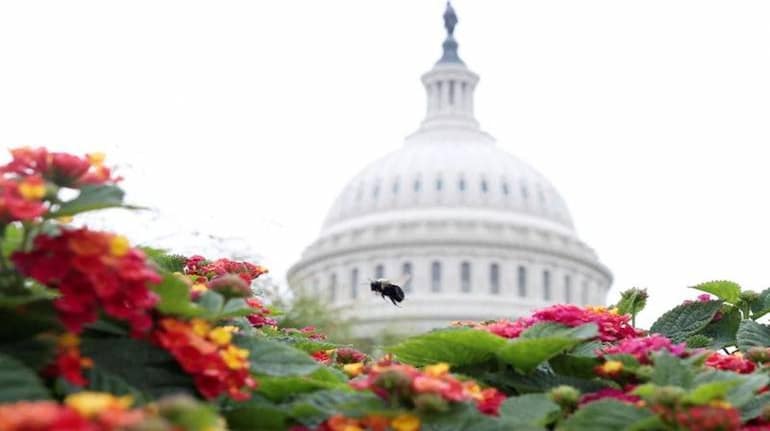



Whether celebrating victory or licking the wounds of defeat following Tuesday's election, the current members of the US Congress must pivot quickly to a new priority: Avoiding a government shutdown in December during a pandemic.
The Republican-controlled Senate and Democratic-controlled House of Representatives on Wednesday will also return to the logjam that has prevented any fresh action since April to stimulate the coronavirus-hit economy.
The "lame duck" Congress, in business until early January, has been working since Oct. 1 under a temporary budget that expires on Dec. 11, with the Senate having failed to pass any of the 12 spending bills needed to run government activities.
With the White House race yet to be called and the fundamental balance of power in the two chambers unchanged by Tuesday's voting, neither party heads into the final weeks of the year with a momentum boost.
At stake is the approximately $1.3 trillion in discretionary spending for defense and non-defense activities. This does not include huge programs operating on automatic pilot, such as the Social Security retirement plan and federal healthcare programs for the poor and elderly. It also does not include "emergency" funds for natural disasters, pandemic relief and other unexpected events.
History shows that Congress has a smoother time finding compromise in the weeks after an election.
"It is easier for members to vote for bills that might make some blocs of voters unhappy," said American University Professor Jordan Tama. "Spending bills are a very good example," he said.
But Tama, an expert on Congress, said that with the outcome of the presidential election in doubt, it could be "impossible for Congress to be productive," raising the prospect of a partial government shutdown after Dec. 11.
Another unknown is whether President Donald Trump will sign whatever the lame duck Congress sends him.
A record-long partial government shutdown occurred from Dec. 22, 2018, to Jan. 25, 2019, after Trump rejected a deal that had been negotiated and Congress then refused Trump's demand for $5.7 billion to build a US Mexico border wall.
Since the mid-1990s, there have been periodic government shutdowns, usually triggered by Republicans. The public reaction is generally negative, especially when federal parks are shuttered, airport operations face cutbacks and workers are furloughed.
This could be particularly problematic during the COVID-19 pandemic as the federal government would have to grapple with identifying "essential" versus "non-essential" employees amid a health crisis.
Aside from approving spending bills, rhetoric over the size and shape of the next coronavirus aid bill is likely to echo through Congress. Senate Majority Leader Mitch McConnell has said that passage of a bill should be put off until early January.
Follow our full coverage of the coronavirus pandemic here.
Discover the latest Business News, Sensex, and Nifty updates. Obtain Personal Finance insights, tax queries, and expert opinions on Moneycontrol or download the Moneycontrol App to stay updated!
Find the best of Al News in one place, specially curated for you every weekend.
Stay on top of the latest tech trends and biggest startup news.